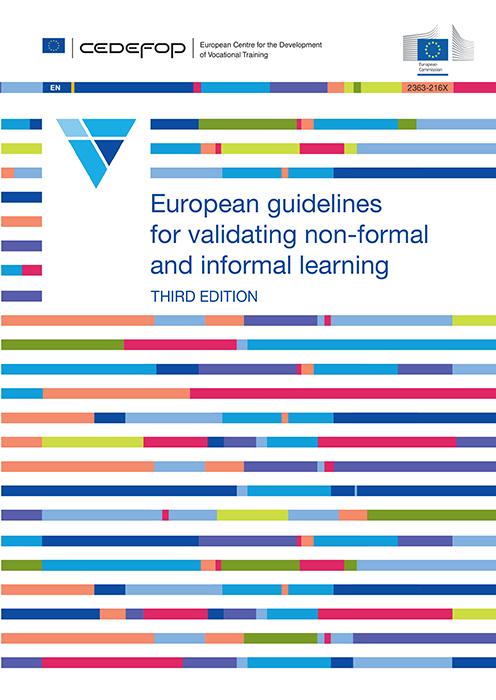
Why validation?
Skills are acquired in various contexts and throughout life, not only in school or university (formal education). Much of the learning takes place at work or during leisure time (non-formal or informal setting). Validating non-formal and informal learning aims to make the skills acquired in these contexts visible, allowing individuals to obtain qualifications, access training, or enter the job market.
This helps bridge the gap between skills demand and supply, harnesses the full potential of the workforce, and improves employability. Validation enables individuals to build on their existing skills, tailoring education and training to their specific needs, and facilitating upskilling and reskilling.
How the European Guidelines support validation?
The recently published third edition of the European Guidelines for validating non-formal and informal learning describes the necessary conditions and elements for initiating, developing, and implementing validation. It emphasizes the critical decisions that stakeholders need to make at various stages of the process. A key principle for successful validation arrangements is that they must be designed to meet the needs of different target groups. The guidelines cover interconnected topics that, when combined, strengthen validation's role at national and European levels, promoting a coherent approach.
This updated edition of the European guidelines is the result of a longstanding collaboration between Cedefop (European Centre for the Development of Vocational Training), the European Commission, experts, and representatives from the European Qualification Framework Advisory Group. The guidelines prioritise individuals and provide insights into provision, methodologies, coordination, and implementation of the validation process. The 2023 version also addresses emerging issues, including cost and financing, standards and reference points, outreach strategies, digital certification, and micro-credentials.
What is next?
-
Autumn 2023: An online seminar co-organised by Cedefop and the European Commission to present the guidelines and discuss their use.
-
First quarter 2024: Update of the European Inventory on validation by the European Commission with the support of Cedefop and the ETF (European Training Foundation). The inventory presents examples of how European countries and institutions develop and implement validation. It highlights the way countries tackle the challenges addressed in the European guidelines.
Details
- Publication date
- 10 August 2023
- Author
- Directorate-General for Employment, Social Affairs and Inclusion
